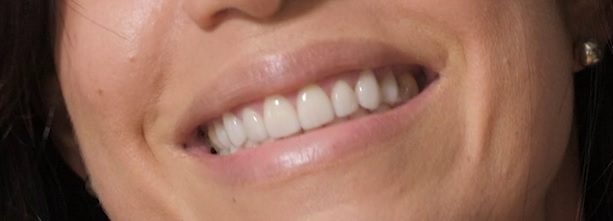It’s All About Your Gums
Having healthy gums is essential to ensure proper oral health. Gum care is just as important as caring for your teeth. Having healthy gums is not just a matter of aesthetics, as they are a key part of the structure and stability of the teeth. Hence, the good maintenance of this area is extremely important, since they are in charge of the protection and support of the teeth.
Here are the ways:
1) Dental hygiene to prevent periodontal problems
Gingivitis is the inflammation of the gums and bleeding is the main warning sign. Gum bleeding is a sign of inflammation and disease, and if not treated properly it can lead to periodontitis, which is the deep infection of the gum and the rest of the tissues that hold the teeth and can cause tooth loss.
For proper dental hygiene:
- Brush your teeth for 2 minutes 3 times a day or after each meal with a top-quality toothbrush (soft bristles!).
- Use dental floss daily, because using only the toothbrush leaves up to 40% of the teeth surface unclean. To achieve optimal oral hygiene, it is necessary to clean the space between the teeth.
- Choose the right toothpaste.
2) Take care of your diet
Maintaining a diet rich in vitamins helps to maintain healthy gums. There are several nutrients that cannot be out of our daily diet if we want to enjoy good oral health.
Periodontal diseases, such as gingivitis, are largely due to bacteria present in food debris that get trapped between the teeth. Vitamin D facilitates the absorption of calcium and phosphorus, making our gums and teeth much more resistant to this type of infection. The source of Vitamin D par excellence is exposure to the sun, but it is also present in foods such as fatty fish (salmon, sardines or tuna), beef liver or eggs.
Vitamin C and K, present in many fruits such as kiwi, prevent the appearance of gum diseases, such as gingivitis. A diet that includes vitamin B2 will prevent the gums from swelling and the lips from chapping.
In addition, calcium intake is essential to strengthen not only the gums, but also the teeth and jaw bones.
3) Hydration
Hydration is important for our entire body in general, but especially for our oral cavity. Drinking 8 to 10 glasses of water a day stimulates saliva production.
There are certain medications and foods that cause dry mouth. Having less saliva makes it difficult for us to protect against cavities and can cause discomfort when swallowing. There are toothpastes and some specific products for this problem on the market. It is also highly recommended to chew sugar-free gum with xylitol, which apart from stimulating salivation provides protection against cavities.
4) Avoid bad habits, mainly tobacco
Tobacco is very harmful to our mouth. It produces a decrease in the amount of saliva and a decrease in the ability to fight oral infections.
Every time you smoke, there is an increase in the temperature of the mouth that can cause irreversible damage to the cells of the oral cavity. In fact, tobacco, like alcohol, is one of the most important risk factors for oral cancer. For this reason, we must try to reduce its consumption.
5) Do not leave dental problems for later
Go to the dentist at least twice a year for a general check-up of the teeth and the health of the gums. Oral hygiene with brushing is often not enough and special cleaning is necessary. Prevention is the best investment. A regular visit to the dentist will allow to check both the health of the teeth and the frequently forgotten gums, helping to prevent periodontal diseases and, if it is no longer possible, at least slow its course.
To help alleviate the symptoms
Try a salt water rinse! For maximum benefit, here’s how to do it:
- Put lukewarm water into a cup
- Add 1 teaspoon of salt
- Add 1 teaspoon of baking soda
- Stir it very well for a 30s to 1 minute to get the salt dissolved
- Now rinse some of it with your mouth with it like mouth wash and spit it out. It will taste salty so hold your nose!
- FOr the rest in the glass, you can use your toothbrush. Put some of the solution on it and use it to genthly brush your teeth and massage your gums
- Repeat a few times a day
Remember, you might need to avoid this treatment if you have high blood pressure or have other health conditions so consult your dentist or physician.
The saltwater rinse can help with gum inflammation discomfort temporarily. However, it is not a cure! Gum disease or gingivitis (or the more advanced stages periodontitis), cannot be cured by a rinse. If your gums are chronically inflamed and red, you must make an effort to see your Dentist right away.
The American Dental Association has great tips on how to maintain your oral health. To read more, click here.
Read our articles about related subjects:
St. Andrew’s Dental Centre
Address: 2 Orchard Heights Blvd #33, Aurora ON L4G3W3
Phone: (289) 796-0420
Check out our socials!



